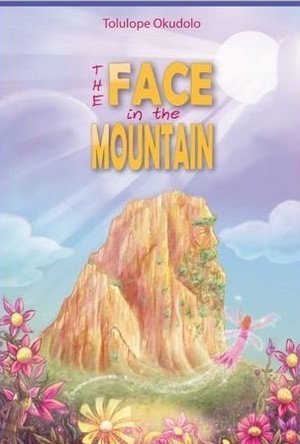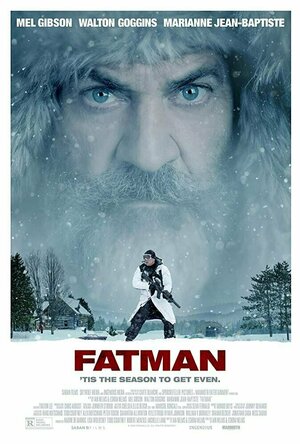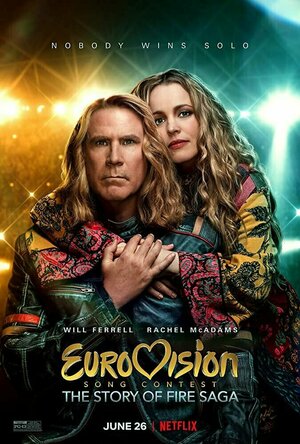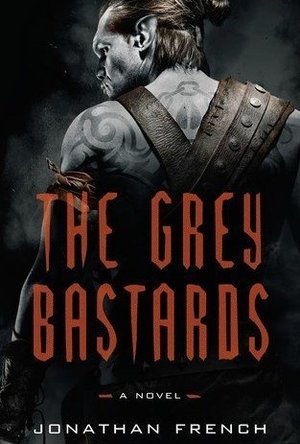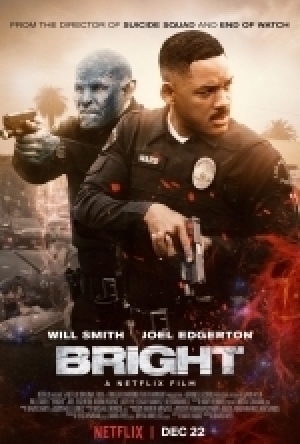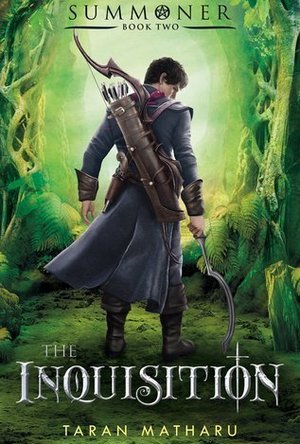Search
Hazel (1853 KP) rated The Face in the Mountain in Books
Dec 17, 2018
<i>This eBook was provided by the publisher via NetGalley in exchange for an honest review
The Face in the Mountain </i>is a children’s picture book written by Tolulope Okudolo as part of the publishing company <i>Magnifying Children’s Horizons</i> vision of developing a world in which children learn about and appreciate nature.
The story is set in the fictional world of Vomper Creek where there is always an abundance of natural activity – that is if tree elves, giants and fairies count as “natural”. Papa and Boma are the only giants living in this area and are responsible for making sure nature does everything it is supposed to do. In fact it was Papa who built the mountains in this region to begin with. However Papa is old, frail and tired after working for over two hundred years. He needs to sleep for a century to regain his energy, thus leaving Boma, at a mere seven years of age, to take on all the important tasks.
So begins the main part of the story: Boma is scared and convinced he is unable to remember Papa’s instructions and tries to hide from all his duties. Without his help nature will not be able to function properly. Inspired by an artist he spies in the woods, Boma carves his father’s face into the side of one of the mountains so that he can always see it. This makes him feel less alone and he is able to complete all his jobs to perfection.
The purpose of this book is to help children discover the inner workings of nature and recognize that many things are connected together. For example the wind is needed to blow the seeds into places where they can sprout, then the rain, sun and soil provide the nutrients the plant needs to grow.
At the end of the story is <i>A Children’s Guide to Natural Beings</i>. This is essentially a glossary of the mythical beings featured in the book. The only issue with this is that calling them “natural beings” implies that they are real whereas there is no concrete evidence of their existence. This could give children the wrong impression about the way nature works.
The final pages of the book include a list of learning activities and discussion questions. These could be attempted in schools, in book clubs or at home with parents as a way for children to experience nature for themselves and examine the meaning of the story and the ways in which they can relate it to their own lives.
Eric Scott Fisher beautifully illustrates the book with realistic drawings that are appropriate for children of all ages. Yet there is a slight publishing issue in that the illustrations and body text do not work together. In some instances the text is overlaid on a picture, which makes it difficult to read.
The reading age of this book is approximately seven to ten year olds however younger children will be able to understand it if it is read to them by an adult. The storyline is not that strong but hopefully its purpose – to educate children about nature – will shine through the narrative.
The Face in the Mountain </i>is a children’s picture book written by Tolulope Okudolo as part of the publishing company <i>Magnifying Children’s Horizons</i> vision of developing a world in which children learn about and appreciate nature.
The story is set in the fictional world of Vomper Creek where there is always an abundance of natural activity – that is if tree elves, giants and fairies count as “natural”. Papa and Boma are the only giants living in this area and are responsible for making sure nature does everything it is supposed to do. In fact it was Papa who built the mountains in this region to begin with. However Papa is old, frail and tired after working for over two hundred years. He needs to sleep for a century to regain his energy, thus leaving Boma, at a mere seven years of age, to take on all the important tasks.
So begins the main part of the story: Boma is scared and convinced he is unable to remember Papa’s instructions and tries to hide from all his duties. Without his help nature will not be able to function properly. Inspired by an artist he spies in the woods, Boma carves his father’s face into the side of one of the mountains so that he can always see it. This makes him feel less alone and he is able to complete all his jobs to perfection.
The purpose of this book is to help children discover the inner workings of nature and recognize that many things are connected together. For example the wind is needed to blow the seeds into places where they can sprout, then the rain, sun and soil provide the nutrients the plant needs to grow.
At the end of the story is <i>A Children’s Guide to Natural Beings</i>. This is essentially a glossary of the mythical beings featured in the book. The only issue with this is that calling them “natural beings” implies that they are real whereas there is no concrete evidence of their existence. This could give children the wrong impression about the way nature works.
The final pages of the book include a list of learning activities and discussion questions. These could be attempted in schools, in book clubs or at home with parents as a way for children to experience nature for themselves and examine the meaning of the story and the ways in which they can relate it to their own lives.
Eric Scott Fisher beautifully illustrates the book with realistic drawings that are appropriate for children of all ages. Yet there is a slight publishing issue in that the illustrations and body text do not work together. In some instances the text is overlaid on a picture, which makes it difficult to read.
The reading age of this book is approximately seven to ten year olds however younger children will be able to understand it if it is read to them by an adult. The storyline is not that strong but hopefully its purpose – to educate children about nature – will shine through the narrative.
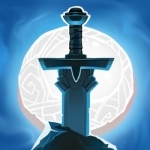
Lionheart: Dark Moon
Games
App
Pick up and play this brand new mobile RPG with stunning graphics and animation! Build your...
RPGApps BattleApps
Emma @ The Movies (1786 KP) rated Fatman (2020) in Movies
Dec 21, 2020
I'll level with you on this one, I had no idea what I was in for, but Mel Gibson as a crazed looking Santa had me sold, so I went ahead a brought this one on DVD.
As Santa tries to keep his workshop afloat in ever trying naughty times. But as he diversifies his team, a new problem raises its ugly head, eternally naughty Billy is less than impressed by his coal and hires a hitman to take Santa out of the festivities for good.
The idea of making this sort of Christmas film is wonderful to me, the action-packed ride of a thriller with just enough festivity to make it a great alternative Christmas movie choice... *chef's kiss*
Bringing the added twist of children getting a little less nice every year, we see the stark reality that this brings to Santa's business model. It gives him the very modern concern of traditional businesses... and I really liked that angle.
Gibson in the gruff but jolly role of Santa fits well with this aesthetic, and the way he manages to turn Santa into a hardened action star really amused me. There were great subtleties in the character and I loved how we saw his changes, and how they dealt with the mystery of Santa as an eternal, all-knowing character. And for that matter, the elves and how they prove to be the most effective workforce on the planet.
Pitted against Santa we have Walton Goggins as our hitman and Chance Hurstfield as Billy... who is the first person I have wished a reindeer trampling on. Billy is the evil part of the baddie contingent, while the Skinny Man (as he's named on IMDb) really feels like he's just bad for the paycheck and you'd actually bring him round after a good talking to. Goggins has an interesting backstory to his character, and yet for some reason we never get a very satisfying look at it. An opportunity missed that leaves part of the storyline a little unanswered.
Almost instantly I was struck by the look of the film, the general muted tones with punctuations of red and green made for very strong visuals. The snow-covered scenery and rustic feel to Santa's compound was a lovely addition too, and it was a refreshing change to the vibrant and excessively cheery depiction of a "traditional" Santa's village.
While I loved the idea they were conjuring here, there were bits of the execution that didn't feel quite right. For an action film, it was missing some... kapow... literally. The explosions had no wow factor and seemed rather tame for this outlandish tale. The film also felt like it was trying to be too many different things. Billy's overly animated maniacal behaviour felt like it was trying to keep the film for a younger audience, but with a 15 rating that was out of their reach. This, coupled with the missing Goggins backstory felt like they weren't convinced by their own ideas. With the film being quite a short 1 hour 40 I think it could have stood a few additions here and there.
I'm definitely here for the menacing Father Christmas, and more actiony Christmas movies in my life. The way they switched this one up put a genuine smile on my face.
Originally posted on: https://emmaatthemovies.blogspot.com/2020/12/fatman-movie-review.html
As Santa tries to keep his workshop afloat in ever trying naughty times. But as he diversifies his team, a new problem raises its ugly head, eternally naughty Billy is less than impressed by his coal and hires a hitman to take Santa out of the festivities for good.
The idea of making this sort of Christmas film is wonderful to me, the action-packed ride of a thriller with just enough festivity to make it a great alternative Christmas movie choice... *chef's kiss*
Bringing the added twist of children getting a little less nice every year, we see the stark reality that this brings to Santa's business model. It gives him the very modern concern of traditional businesses... and I really liked that angle.
Gibson in the gruff but jolly role of Santa fits well with this aesthetic, and the way he manages to turn Santa into a hardened action star really amused me. There were great subtleties in the character and I loved how we saw his changes, and how they dealt with the mystery of Santa as an eternal, all-knowing character. And for that matter, the elves and how they prove to be the most effective workforce on the planet.
Pitted against Santa we have Walton Goggins as our hitman and Chance Hurstfield as Billy... who is the first person I have wished a reindeer trampling on. Billy is the evil part of the baddie contingent, while the Skinny Man (as he's named on IMDb) really feels like he's just bad for the paycheck and you'd actually bring him round after a good talking to. Goggins has an interesting backstory to his character, and yet for some reason we never get a very satisfying look at it. An opportunity missed that leaves part of the storyline a little unanswered.
Almost instantly I was struck by the look of the film, the general muted tones with punctuations of red and green made for very strong visuals. The snow-covered scenery and rustic feel to Santa's compound was a lovely addition too, and it was a refreshing change to the vibrant and excessively cheery depiction of a "traditional" Santa's village.
While I loved the idea they were conjuring here, there were bits of the execution that didn't feel quite right. For an action film, it was missing some... kapow... literally. The explosions had no wow factor and seemed rather tame for this outlandish tale. The film also felt like it was trying to be too many different things. Billy's overly animated maniacal behaviour felt like it was trying to keep the film for a younger audience, but with a 15 rating that was out of their reach. This, coupled with the missing Goggins backstory felt like they weren't convinced by their own ideas. With the film being quite a short 1 hour 40 I think it could have stood a few additions here and there.
I'm definitely here for the menacing Father Christmas, and more actiony Christmas movies in my life. The way they switched this one up put a genuine smile on my face.
Originally posted on: https://emmaatthemovies.blogspot.com/2020/12/fatman-movie-review.html
Kirk Bage (1775 KP) rated Eurovision Song Contest: The Story of Fire Saga (2020) in Movies
Aug 6, 2020
Much like Eurovision itself, this film shouldn’t be entertaining in any way, but after watching it for ten minutes it becomes a compelling car crash you kinda have to see out to the end. It doesn’t really matter what you think of the songs, you are watching it waiting for the one thing you can make fun of, rubbing your eyes in disbelief that anything so camp and lame can exist.
Will Ferrell understands this of course. There is so much about the weird world of Eurovision to make fun of. The naff music, the costumes, the lost in translation moments from obscure countries trying their best and mostly failing to realise how daft they look. Enjoying this film depends on how funny you find Ferrell, not on any love of cheesy pop songs. Fortunately, I find him usually hilarious.
Not that every joke lands, or even makes sense at all. It is as bizarre as the contest itself; you just have to leave your brain at the door and go with it. There is a lot to like. Not least the adorable and consistently watchable Rachel McAdams who seems the perfect choice to play Sigrit, the girl dreaming of having the world hear her sing and strive for her spirit note. There is also an odd turn from Pierce Brosnan, who makes no effort whatsoever to make it good, and comes full circle in being so bad it’s amazing.
The joke is that they are from Iceland, who never win the thing, or ever come close. The country itself doesn’t want to win, as they would have to pay for it next year, so, after a bizarre accident where every other candidate explodes, they turn to the naive duo of Fire Saga, who are guaranteed to be a joke. And they are. But of course we are on their side, as they live the dream and go for underdog glory. What can go wrong does, and every comedy trope in the book is trotted out, along with a huge dose of sentimentality.
Naturally there is music. Ranging from the excruciating to the actually not too bad, to the hmmm, I actual like that! One highlight is a montage piece in the middle, as all contestants jam at a pre-final party – just so much fun and a totally catchy song. I am not entirely ashamed to say that it kinda got me. The pathos leading up to the climax hit me in the vulnerable feels, as I lay on a Sunday morning helpfully hung-over and tender. This is the way to watch it, I feel, or, you know, with young kids, who will lap up the silliness and talent show sensibility.
Look, it’s terrible on any artistic or serious level. The script is a mess, the direction could have been phoned in by a chimp, and the plot serves to say nothing new or inciteful, but it doesn’t matter. Watch it, have a chuckle and then throw it away. I can think of many less innocent comedies that are far less worthy of attention. And at the very least, there is a bit with elves that had me pressing pause till I got all my laughs out.
Pick a day when you have no energy to fight the world or string two thoughts together and just enjoy it.
Decinemal Rating: 63
Will Ferrell understands this of course. There is so much about the weird world of Eurovision to make fun of. The naff music, the costumes, the lost in translation moments from obscure countries trying their best and mostly failing to realise how daft they look. Enjoying this film depends on how funny you find Ferrell, not on any love of cheesy pop songs. Fortunately, I find him usually hilarious.
Not that every joke lands, or even makes sense at all. It is as bizarre as the contest itself; you just have to leave your brain at the door and go with it. There is a lot to like. Not least the adorable and consistently watchable Rachel McAdams who seems the perfect choice to play Sigrit, the girl dreaming of having the world hear her sing and strive for her spirit note. There is also an odd turn from Pierce Brosnan, who makes no effort whatsoever to make it good, and comes full circle in being so bad it’s amazing.
The joke is that they are from Iceland, who never win the thing, or ever come close. The country itself doesn’t want to win, as they would have to pay for it next year, so, after a bizarre accident where every other candidate explodes, they turn to the naive duo of Fire Saga, who are guaranteed to be a joke. And they are. But of course we are on their side, as they live the dream and go for underdog glory. What can go wrong does, and every comedy trope in the book is trotted out, along with a huge dose of sentimentality.
Naturally there is music. Ranging from the excruciating to the actually not too bad, to the hmmm, I actual like that! One highlight is a montage piece in the middle, as all contestants jam at a pre-final party – just so much fun and a totally catchy song. I am not entirely ashamed to say that it kinda got me. The pathos leading up to the climax hit me in the vulnerable feels, as I lay on a Sunday morning helpfully hung-over and tender. This is the way to watch it, I feel, or, you know, with young kids, who will lap up the silliness and talent show sensibility.
Look, it’s terrible on any artistic or serious level. The script is a mess, the direction could have been phoned in by a chimp, and the plot serves to say nothing new or inciteful, but it doesn’t matter. Watch it, have a chuckle and then throw it away. I can think of many less innocent comedies that are far less worthy of attention. And at the very least, there is a bit with elves that had me pressing pause till I got all my laughs out.
Pick a day when you have no energy to fight the world or string two thoughts together and just enjoy it.
Decinemal Rating: 63
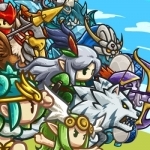
Endless Frontier Saga - RPG
Games
App
Endless Frontier is the best in idle role playing games for commanding your army of knights in a...
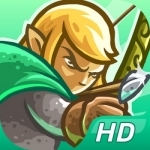
Kingdom Rush Origins HD
Games and Entertainment
App
***Best Mobile Game 2015 DICE Nominee*** The most addicting tower defense game returns in an...
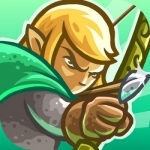
Kingdom Rush Origins
Games and Entertainment
App
***Best Mobile Game 2015 DICE Nominee*** The most addicting tower defense game returns in an...
Mandy and G.D. Burkhead (26 KP) rated The Grey Bastards in Books
May 20, 2018
Shelf Life – The Grey Bastards Exemplifies Grimdark Fantasy at Its Damn Finest
Contains spoilers, click to show
The Grey Bastards is a fun, foul-mouthed read. If you’re turned off by bad language, steamy sex, or a good plot with plenty of action and twists, then this book isn’t for you. The Grey Bastards falls into the fantasy sub-genre known as grimdark. Where high fantasy has your Tolkien beautiful and noble elves, dwarves, humans, and wizards with epic battles between good and evil, grimdark takes all of that and covers it in shit, pus, and blood. Notice how in high fantasy nobody ever takes a piss or fucks? In grimdark, everyone does.
But don’t be fooled into thinking this book will be any less intelligent, epic, or heartfelt for it. The Grey Bastards is all of that and more. The novel follows Jackal, a half-breed orc living in the Lot Lands, the barren desert wasteland of Hispartha. He is a Grey Bastard, one of many half-orc hoofs, each protecting its own small town in the Lots. Members of a hoof are elite warriors that ride out on their Barbarians—giant warthogs—and slaughter invading bands of orcs.
Hispartha is a vibrant world, with a mix of fantastical species (orcs, half-orcs, elves, humans, halflings, and centaurs) with unique cultures and religions. Hispartha itself takes influences from Reconquista Spain, which is especially noticeable in the nomenclature, geography, and architecture.
The primarily atheistic half-orcs recently won their freedom from slavery at the hands of humans. Humans treat the half-orcs like second-class citizens, but tolerate them because of their strength, using them as a shield from the orcs. The elves are beautiful, reclusive, and probably the most cliché; there is one important elf character, but for the most part, we don’t get a good look into their culture in the first book. The centaurs worship Romanesque deities and go on crazed, Bacchanalian killing sprees during the blood moon.
Besides the half-orcs, the halflings are perhaps the most interesting. I still have a hard time visualizing them, trying to figure out if they are thin, pixie-like creatures or more stocky like dwarves. Their small stature and black skin makes me think of pygmies. They worship a god they expect will reincarnate someday, (view spoiler)
One thing that has always annoyed me about fantasy is that many authors feel that the characters of their world, being pre-industrial and thus “medieval,” must all be white, straight, Christian (or proto-Christian), cisgender males. If a woman appears at all is to act as the damsel, prize, or, if she’s lucky, a mystical enchantress to guide the heroes or provide a maguffin. It has come to the point in which this has become a tired and accepted baseline for fantasy. I don’t necessarily think that these fantasy authors are intentionally trying to be uninclusive, so much as they just seem to forget that other groups of people can exist in fantasy thanks to its fathers, Tolkien and Lewis.
But enough with my rant, the purpose of which is to highlight why I am often drawn to grimdark fantasy: at the very least I know that women, people of color, lgbt people, and other religions will be present, even if they are often victimized. This is because grimdark fantasy honestly depicts the horrors of rape, war, murder, slavery, and racism (or rather, speciesism in most cases) and has heroes and villains that are morally grey.
However, many authors describe these atrocities and then leave it at that, assuming that simply depicting them is enough to make a book mature and meaningful. They often fail to make any sort of statement on evil, and thus can seem to be, at best, blindly accepting it and, at worst, glorifying it (this often happens in the cases of magnificent bastard characters, who are absolute monsters but are so charming you almost respect or like them).
Jonathan French, however, does not fall short of the mark as many authors do, and for two main reasons: humor and humanity.
Let’s start with the humor. This book is hilarious. I mean in the I literally laughed out loud while reading it way. Sure, the jokes are often crass, but I have a dirty mind, so inappropriate humor is my favorite kind. The dialogue is especially top-notch, and the interactions between Jackal and his friends Fetching and Oats feel genuine, full of in-jokes, insults, and sexually-charged humor, all of which are exactly how I interact with my own close friends. And every major character in this book is so damn witty that I’m honestly jealous of them. If I could be quick enough to make even one of their zingers at the right time in a conversation, I would feel proud of myself for the rest of the day.
Humor is necessary to prevent any grimdark fantasy from becoming too over-the-top or depressing. And honestly, humor is needed most when the world is a dark and frightening place. But too much humor could accidentally downplay the point of grimdark: the brutally honest depiction of the atrocities that people are capable of.
And this is where it is important to have an element of humanity. By this I mean that the “good guys” must make some action or statement on those atrocities. Too often I read or watch hardened badass characters with no emotion who can watch a person get tortured and killed without flinching (maybe even do it themselves) and who never stop to question the nature of their society (even as part of their character growth), and I have difficulty finding them at all relatable or even the least bit interesting.
Now, often for this type of character, he or she is dead inside as a coping mechanism and part of their character arc is learning to allow themselves to feel their repressed emotions: heartbreak, anger, fear, etc. This can be done very well (see The Hunger Games for a great example—dystopian scifi and grimdark fantasy have very similar undertones). But most times it just ends up falling flat.
But Jackal already starts out with more personality than most grimdark protagonists. He is a humorous and light-hearted person. Sure, he lives in a desert wasteland, his race is entirely created by rape, he’s treated as a second-class citizen, and his life and the lives of those around him are in constant danger of rape and/or murder by invading orcs or blood-crazed centaurs. But despite all of that, he still has a sense of humor, people he loves, a community, ambitions, moral code, and all of the other things that these protagonists are often lacking.
Don’t get me wrong, he can be an asshole, and he’s often acts rashly before he thinks. But the scene that really stuck with me the most was [when Jackal and the wizard Crafty come across an unconscious elf sex-slave. I was expecting him to say something along the lines of “There’s nothing we can do for her, we have to save ourselves” or “This isn’t any of our business” or “It would be best to just put her out of her mercy.” These are the typical lines that a grimdark protagonist might utter while their companion—accused of being a bleeding heart—frees the slave. But this was not the case. Jackal and Crafty both immediately set out to free the girl and steal her away from her owner, despite the danger to themselves. And when he comes across an entire castle-full of these women, Jackal again sets about freeing them without a moment’s hesitation. (hide spoiler)]
And it’s no surprise that Jackal has a serious problem with rape. As I’ve mentioned before, half-orcs are entirely the product of roving bands of orcs raping human, elven, or even half-orc women. [When Jackal learns that Starling, the elf slave he rescued, is pregnant with a half-orc baby, he is not only furious with the orcs that gang-raped her, but also disturbed by the fact that elven society shuns any of their women who have been raped, and that these victims often end up taking their own lives rather than give birth to an impure half-elf. (hide spoiler)]
Furthermore, Jackal, unlike many people in Hispartha, does not buy into misogyny or sexism. His best friend Fetching is the first female half-orc to have joined a group of riders. Not only does Jackal respect Fetching, he understands the emotional turmoil that she is dealing with being the first female rider and how she overcompensates as a result to earn the respect of the other men.
While there is quite a bit of speciesism (pretty much none of the species get along with one another), the inhabitants of Hispartha come in every skin color and nobody gives a damn. Furthermore, sexuality is primarily treated as each person’s individual preference and nobody else’s business. While characters may make jokes about acting “backy” (gay), these are made in good humor between friends, and nobody gets particularly offended by them. Fetching is herself openly bisexual (though she seems to suppress her heterosexual desires more than her homosexual ones out of that same need to be “one of the boys”), and Oats and Jackal are one of my favorite bromantic pairings.
Grimdark fantasy can often be depressing to read. But Jonathan French does an excellent job of infusing hope into his narrative. The story actually has a happier ending than I was expecting. [I was especially pleased when Jackal chooses Fetching to be the new leader of the hoof (she is voted in unanimously by the other riders). I find it incredibly annoying in books and movies when revolutionaries/usurpers decide to appoint themselves leaders, as the former does not qualify you for the latter. Part of Jackal’s arc is realizing that he is not meant to lead the hoof like he’d once desired. (hide spoiler)]
For the sequel, The True Bastards, I’m hoping to see [if a cure can be found for the thrice-blood child now infected with plague, how Fetching is doing leading the hoof, and what the mysterious Starling is up to (I don’t buy for a second that she’s killed herself). And of course, I fully expect that Jackal is going to have to fulfill his empty promise to the halfling’s resurrected god, Belico.
But don’t be fooled into thinking this book will be any less intelligent, epic, or heartfelt for it. The Grey Bastards is all of that and more. The novel follows Jackal, a half-breed orc living in the Lot Lands, the barren desert wasteland of Hispartha. He is a Grey Bastard, one of many half-orc hoofs, each protecting its own small town in the Lots. Members of a hoof are elite warriors that ride out on their Barbarians—giant warthogs—and slaughter invading bands of orcs.
Hispartha is a vibrant world, with a mix of fantastical species (orcs, half-orcs, elves, humans, halflings, and centaurs) with unique cultures and religions. Hispartha itself takes influences from Reconquista Spain, which is especially noticeable in the nomenclature, geography, and architecture.
The primarily atheistic half-orcs recently won their freedom from slavery at the hands of humans. Humans treat the half-orcs like second-class citizens, but tolerate them because of their strength, using them as a shield from the orcs. The elves are beautiful, reclusive, and probably the most cliché; there is one important elf character, but for the most part, we don’t get a good look into their culture in the first book. The centaurs worship Romanesque deities and go on crazed, Bacchanalian killing sprees during the blood moon.
Besides the half-orcs, the halflings are perhaps the most interesting. I still have a hard time visualizing them, trying to figure out if they are thin, pixie-like creatures or more stocky like dwarves. Their small stature and black skin makes me think of pygmies. They worship a god they expect will reincarnate someday, (view spoiler)
One thing that has always annoyed me about fantasy is that many authors feel that the characters of their world, being pre-industrial and thus “medieval,” must all be white, straight, Christian (or proto-Christian), cisgender males. If a woman appears at all is to act as the damsel, prize, or, if she’s lucky, a mystical enchantress to guide the heroes or provide a maguffin. It has come to the point in which this has become a tired and accepted baseline for fantasy. I don’t necessarily think that these fantasy authors are intentionally trying to be uninclusive, so much as they just seem to forget that other groups of people can exist in fantasy thanks to its fathers, Tolkien and Lewis.
But enough with my rant, the purpose of which is to highlight why I am often drawn to grimdark fantasy: at the very least I know that women, people of color, lgbt people, and other religions will be present, even if they are often victimized. This is because grimdark fantasy honestly depicts the horrors of rape, war, murder, slavery, and racism (or rather, speciesism in most cases) and has heroes and villains that are morally grey.
However, many authors describe these atrocities and then leave it at that, assuming that simply depicting them is enough to make a book mature and meaningful. They often fail to make any sort of statement on evil, and thus can seem to be, at best, blindly accepting it and, at worst, glorifying it (this often happens in the cases of magnificent bastard characters, who are absolute monsters but are so charming you almost respect or like them).
Jonathan French, however, does not fall short of the mark as many authors do, and for two main reasons: humor and humanity.
Let’s start with the humor. This book is hilarious. I mean in the I literally laughed out loud while reading it way. Sure, the jokes are often crass, but I have a dirty mind, so inappropriate humor is my favorite kind. The dialogue is especially top-notch, and the interactions between Jackal and his friends Fetching and Oats feel genuine, full of in-jokes, insults, and sexually-charged humor, all of which are exactly how I interact with my own close friends. And every major character in this book is so damn witty that I’m honestly jealous of them. If I could be quick enough to make even one of their zingers at the right time in a conversation, I would feel proud of myself for the rest of the day.
Humor is necessary to prevent any grimdark fantasy from becoming too over-the-top or depressing. And honestly, humor is needed most when the world is a dark and frightening place. But too much humor could accidentally downplay the point of grimdark: the brutally honest depiction of the atrocities that people are capable of.
And this is where it is important to have an element of humanity. By this I mean that the “good guys” must make some action or statement on those atrocities. Too often I read or watch hardened badass characters with no emotion who can watch a person get tortured and killed without flinching (maybe even do it themselves) and who never stop to question the nature of their society (even as part of their character growth), and I have difficulty finding them at all relatable or even the least bit interesting.
Now, often for this type of character, he or she is dead inside as a coping mechanism and part of their character arc is learning to allow themselves to feel their repressed emotions: heartbreak, anger, fear, etc. This can be done very well (see The Hunger Games for a great example—dystopian scifi and grimdark fantasy have very similar undertones). But most times it just ends up falling flat.
But Jackal already starts out with more personality than most grimdark protagonists. He is a humorous and light-hearted person. Sure, he lives in a desert wasteland, his race is entirely created by rape, he’s treated as a second-class citizen, and his life and the lives of those around him are in constant danger of rape and/or murder by invading orcs or blood-crazed centaurs. But despite all of that, he still has a sense of humor, people he loves, a community, ambitions, moral code, and all of the other things that these protagonists are often lacking.
Don’t get me wrong, he can be an asshole, and he’s often acts rashly before he thinks. But the scene that really stuck with me the most was [when Jackal and the wizard Crafty come across an unconscious elf sex-slave. I was expecting him to say something along the lines of “There’s nothing we can do for her, we have to save ourselves” or “This isn’t any of our business” or “It would be best to just put her out of her mercy.” These are the typical lines that a grimdark protagonist might utter while their companion—accused of being a bleeding heart—frees the slave. But this was not the case. Jackal and Crafty both immediately set out to free the girl and steal her away from her owner, despite the danger to themselves. And when he comes across an entire castle-full of these women, Jackal again sets about freeing them without a moment’s hesitation. (hide spoiler)]
And it’s no surprise that Jackal has a serious problem with rape. As I’ve mentioned before, half-orcs are entirely the product of roving bands of orcs raping human, elven, or even half-orc women. [When Jackal learns that Starling, the elf slave he rescued, is pregnant with a half-orc baby, he is not only furious with the orcs that gang-raped her, but also disturbed by the fact that elven society shuns any of their women who have been raped, and that these victims often end up taking their own lives rather than give birth to an impure half-elf. (hide spoiler)]
Furthermore, Jackal, unlike many people in Hispartha, does not buy into misogyny or sexism. His best friend Fetching is the first female half-orc to have joined a group of riders. Not only does Jackal respect Fetching, he understands the emotional turmoil that she is dealing with being the first female rider and how she overcompensates as a result to earn the respect of the other men.
While there is quite a bit of speciesism (pretty much none of the species get along with one another), the inhabitants of Hispartha come in every skin color and nobody gives a damn. Furthermore, sexuality is primarily treated as each person’s individual preference and nobody else’s business. While characters may make jokes about acting “backy” (gay), these are made in good humor between friends, and nobody gets particularly offended by them. Fetching is herself openly bisexual (though she seems to suppress her heterosexual desires more than her homosexual ones out of that same need to be “one of the boys”), and Oats and Jackal are one of my favorite bromantic pairings.
Grimdark fantasy can often be depressing to read. But Jonathan French does an excellent job of infusing hope into his narrative. The story actually has a happier ending than I was expecting. [I was especially pleased when Jackal chooses Fetching to be the new leader of the hoof (she is voted in unanimously by the other riders). I find it incredibly annoying in books and movies when revolutionaries/usurpers decide to appoint themselves leaders, as the former does not qualify you for the latter. Part of Jackal’s arc is realizing that he is not meant to lead the hoof like he’d once desired. (hide spoiler)]
For the sequel, The True Bastards, I’m hoping to see [if a cure can be found for the thrice-blood child now infected with plague, how Fetching is doing leading the hoof, and what the mysterious Starling is up to (I don’t buy for a second that she’s killed herself). And of course, I fully expect that Jackal is going to have to fulfill his empty promise to the halfling’s resurrected god, Belico.
DiscoStu (6 KP) rated Bright (2017) in Movies
Jan 8, 2018 (Updated Jan 8, 2018)
“A competent buddy cop movie that offers solid pacing and character portrayals at the expense of building up the films (admittedly) interesting universe”.
Contains spoilers, click to show
Netflix’s ‘Bright’, directed by David Ayer (Suicide Squad) and starring Will Smith and Joel Edgerton, brings the big budget box office trappings of a fully fledged cinema release to their home streaming subscription service and arguably the end result is a fun and enjoyable, if slightly flawed, buddy-cop-movie-with-a-twist that sets up a universe you’ll likely want to see more of.
Smith plays Daryl Ward, a weary veteran L.A. cop reluctantly partnered with orc partner Nick, the first and only orc to make the force in this alternate earth story. The film opens with Ward taking a round of buckshot from an orc thug whilst Nick looks on waiting for a burrito from a street vendor. The incident leaves a distrust between Ward and Nick, with Ward unsure whether his partner really has his back after Nick not only failed to step up and prevent the shooting but also failed to apprehend the orc perpetrator during the ensuing foot chase. Ward also finds himself at odds with other members of the force who don’t share the police’s ‘progressive’ attitudes of allowing orcs into the force.
The film briefly touches on a two thousand year old conflict between the nine armies and the Dark Lord who was defeated when various races allied to defeat him. In the established lore the orcs allied with the Dark Lord and have been subjugated ever since. The film attempts to portray the orcs through a social commentary that reflects the black community today and how heavy handed the film tackles the subject will probably depend on the viewer. For me it was handled sensitively enough without being too in your face.
The film sees the two protagonists dispatched to a disturbance that quickly escalates to a situation that goes from bad to worse. Finding themselves on the run with a Bright, the film’s titular white haired magic wielders, and a coveted magic wand Ward and Nick have to navigate hostile L.A. gang land environments whilst pursued by Inferni (the magic version of the Illuminati), the police and human and orc gangsters, all who have their own plans for the wand.
The film is shot well, with plenty of scenery that builds up the shared world of humans, orcs, elves , centaurs and the other races that we don’t get to spend any time with. A montage at the start of the film shows various L.A. scenery graffiti tagged with striking imagery depicting the struggle of orcs in an oppressed landscape. Evidently, orc lives matter. The film also doesn’t struggle for pacing. The two hour runtime services the story well enough, even if some of the world building and character exploration suffers as a result. I would have liked to have spent more time exploring the shared history of the various races and understanding the motivations of the stories’ villains but sadly these elements are undersold in favour of a shorter runtime that hurries the narrative along. To the credit of the writers and the director this world bares revisiting and at the time of writing it sounds like Netflix know this too with a sequel already greenlit.
Bright is a fun jaunt in a world I’d like to get to know better. Smith and Edgerton are strong leads who share a strong chemistry and make you care about their characters. The bad guys don’t fare as well here, especially disappointing given that Noomi Rapace is the lead antagonist but hopefully a sequel will correct some of these missteps. Bright feels like a £20 cinema ticket movie and gives enough to the viewer that you’ll want to discuss it with friends afterwards. As a film bundled with your Netflix subscription it’s hard to be too critical.
Smith plays Daryl Ward, a weary veteran L.A. cop reluctantly partnered with orc partner Nick, the first and only orc to make the force in this alternate earth story. The film opens with Ward taking a round of buckshot from an orc thug whilst Nick looks on waiting for a burrito from a street vendor. The incident leaves a distrust between Ward and Nick, with Ward unsure whether his partner really has his back after Nick not only failed to step up and prevent the shooting but also failed to apprehend the orc perpetrator during the ensuing foot chase. Ward also finds himself at odds with other members of the force who don’t share the police’s ‘progressive’ attitudes of allowing orcs into the force.
The film briefly touches on a two thousand year old conflict between the nine armies and the Dark Lord who was defeated when various races allied to defeat him. In the established lore the orcs allied with the Dark Lord and have been subjugated ever since. The film attempts to portray the orcs through a social commentary that reflects the black community today and how heavy handed the film tackles the subject will probably depend on the viewer. For me it was handled sensitively enough without being too in your face.
The film sees the two protagonists dispatched to a disturbance that quickly escalates to a situation that goes from bad to worse. Finding themselves on the run with a Bright, the film’s titular white haired magic wielders, and a coveted magic wand Ward and Nick have to navigate hostile L.A. gang land environments whilst pursued by Inferni (the magic version of the Illuminati), the police and human and orc gangsters, all who have their own plans for the wand.
The film is shot well, with plenty of scenery that builds up the shared world of humans, orcs, elves , centaurs and the other races that we don’t get to spend any time with. A montage at the start of the film shows various L.A. scenery graffiti tagged with striking imagery depicting the struggle of orcs in an oppressed landscape. Evidently, orc lives matter. The film also doesn’t struggle for pacing. The two hour runtime services the story well enough, even if some of the world building and character exploration suffers as a result. I would have liked to have spent more time exploring the shared history of the various races and understanding the motivations of the stories’ villains but sadly these elements are undersold in favour of a shorter runtime that hurries the narrative along. To the credit of the writers and the director this world bares revisiting and at the time of writing it sounds like Netflix know this too with a sequel already greenlit.
Bright is a fun jaunt in a world I’d like to get to know better. Smith and Edgerton are strong leads who share a strong chemistry and make you care about their characters. The bad guys don’t fare as well here, especially disappointing given that Noomi Rapace is the lead antagonist but hopefully a sequel will correct some of these missteps. Bright feels like a £20 cinema ticket movie and gives enough to the viewer that you’ll want to discuss it with friends afterwards. As a film bundled with your Netflix subscription it’s hard to be too critical.
Kaysee Hood (83 KP) rated The Inquisition (Summoner, Book 2) in Books
May 1, 2018
Justice for Fletcher (3 more)
Past uncovered
Return of Othello, Sylva
Gremlins, Blue
It got better!
Once more I’m impressed with the Summoner books because even though I am late to the game on this series so the suspense of Fletcher’s fate was not as intense it was still thrilling to see how he would escape these false accusations and unfair trails. One can argue Fletcher has sort of put himself in this tight spot, but due to his actions in the previous book he has friends and teachers who stand by knowing there is more to what he is being accused of than what the other side would like to admit. Fletcher has become to center of a far bigger game because of who he is and the power he holds in his attempts to tie races together. Furthermore, without spoiling anything for anyone else, due to a charge which does threaten his life Fletcher is able to learn who he truly is, but he will always be Berdon’s son.
Despite the fact Fletcher was in imprisonment for a year he is game to accept a new mission that will aid Hominum in the war with the Orcs. He’s even willing to accept the challenge that comes with it to prove Elves and Dwarfs can work together in the hopes it will fix the strain on the Dwarven and Elven ties with Humans due to events that took place while he is in the hole. Results he does not doubt the Triumvirate had their hands in. All Fletcher and his friends have to do is go into Orc lands with three other teams to put an end to a Goblin breed.
It can never be easy for Fletcher.
Now, that’s all I really want to cover as important points in [i]The Inquisition[/i] because it should pull you in if my next words do not. To circle back I enjoyed the second book far more than [i]The Novice[/i] yet found a new appreciation for the first book as I realize now all the set up there is the reason the second summoner book is successful and was able to focus on the race issue a bit more
To circle back, my enjoyment of the second summoner book is due to the writing by Matharu because of how he set up [i]The Novice[/i] and there is more appreciation to be had for the first book of the series because it is after the second I realized how much had been done for [i]The Inquisition[/i] to be successful. It is within the first summoner book we’re introduced to key characters, plots (minor and major), lives of the characters, and the issues which will drive Fletcher in the second. If anything, [i]The Novice[/i] was an thick introduction to the events to come in [i]The Inquisition[/i]. So I would say be mindful if you’re thinking to begin the series of what occurs and how it will relate later.
However I want to say the character growth is still alive, for better or worse. We’re even given new characters and demons to grow fond of, or hate. Somehow 350+ pages were not enough and yet were perfect to convey where we needed to go then set up the points for the third book. And I have to say there are some twists in here I did not catch, which is nice for someone who had read so much and can predict so much to come. Even though there is some betrayal to me it was worth it as due to Fletcher’s nature we’re able to gain perspective from another race no one has probably given much thought to.
So, if you have yet to get into the Summoner Books then I suggest you go if you’re for fantasy and magic. If you’ve yet to pick up [i]The Inquisition[/i] then I have to say I have no clue what you are doing because I’m peeved at myself for not getting to it sooner. Honestly, it’s a good series to get lost in and yet think about real world issues we have today even if they’re painted a little bit different.
Despite the fact Fletcher was in imprisonment for a year he is game to accept a new mission that will aid Hominum in the war with the Orcs. He’s even willing to accept the challenge that comes with it to prove Elves and Dwarfs can work together in the hopes it will fix the strain on the Dwarven and Elven ties with Humans due to events that took place while he is in the hole. Results he does not doubt the Triumvirate had their hands in. All Fletcher and his friends have to do is go into Orc lands with three other teams to put an end to a Goblin breed.
It can never be easy for Fletcher.
Now, that’s all I really want to cover as important points in [i]The Inquisition[/i] because it should pull you in if my next words do not. To circle back I enjoyed the second book far more than [i]The Novice[/i] yet found a new appreciation for the first book as I realize now all the set up there is the reason the second summoner book is successful and was able to focus on the race issue a bit more
To circle back, my enjoyment of the second summoner book is due to the writing by Matharu because of how he set up [i]The Novice[/i] and there is more appreciation to be had for the first book of the series because it is after the second I realized how much had been done for [i]The Inquisition[/i] to be successful. It is within the first summoner book we’re introduced to key characters, plots (minor and major), lives of the characters, and the issues which will drive Fletcher in the second. If anything, [i]The Novice[/i] was an thick introduction to the events to come in [i]The Inquisition[/i]. So I would say be mindful if you’re thinking to begin the series of what occurs and how it will relate later.
However I want to say the character growth is still alive, for better or worse. We’re even given new characters and demons to grow fond of, or hate. Somehow 350+ pages were not enough and yet were perfect to convey where we needed to go then set up the points for the third book. And I have to say there are some twists in here I did not catch, which is nice for someone who had read so much and can predict so much to come. Even though there is some betrayal to me it was worth it as due to Fletcher’s nature we’re able to gain perspective from another race no one has probably given much thought to.
So, if you have yet to get into the Summoner Books then I suggest you go if you’re for fantasy and magic. If you’ve yet to pick up [i]The Inquisition[/i] then I have to say I have no clue what you are doing because I’m peeved at myself for not getting to it sooner. Honestly, it’s a good series to get lost in and yet think about real world issues we have today even if they’re painted a little bit different.
